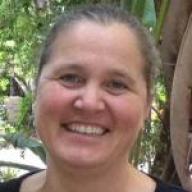 \
&
Contact us
\
&
Contact us
 \
&
Contact us
\
&
Contact us
The administrative and financial framework with rules for application and project implementation of Horizon 2020 call are set-out in the Grant Agreement; the Annotated Model Grant Agreement explains extensively all details.
The European commission gives on a regular basis trainings with background information on coordinators' days, that can be followed live or through webstreaming. Presentations can be consulted in the documents in below.
Information on specific legal and financial topics are listed and documented in the documents in below.

ann.vanhauwaert@fwo.be
+32 2 550 15 60

Ria.debreucker@vlaio.be
+32 2 553 13 77
Find the contact info on the site of WEWIS
The National Contact Points (NCPs) provide support, guidance, and practical information to potential applicants, helping them navigate funding opportunities and application processes.
The Programme Committee (PC) members represent their country in decision-making about the work programmes, evaluate implementation, and provide strategic input on priorities and calls.
Infosheets contain edited content on aspects related to this programme. They are reviewed at least yearly.
Related links are easy pointers towards external information. We curate the list, but are not liable for the destinations.
Documents contain additional information related to this programme, and are similar to related links.
Professor Inez Germeys leads the Center for Contextual Psychiatry at KU Leuven, which is a large multi-disciplinary research group focusing on the interaction between the person and the environment in the development of psychopathology. She has received a European Research Council (ERC) Consolidator grant (INTERACT) and Proof of Concept grant (IMPACT). With these grants professor Germeys and her team researched a new mobile self-management therapy for patients with a psychotic disorder. The Acceptance and Commitment Therapy in Daily Life (ACT-DL) was further developed for the clinical environment. In line with that the Horizon 2020 IMMERSE project aims to thoroughly evaluate strategies, processes, and outcomes of implementing a digital mobile mental health solution.